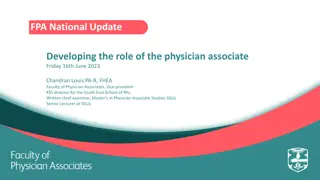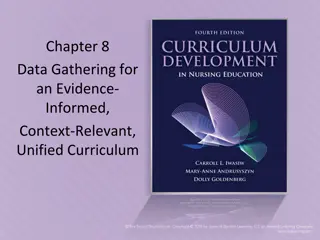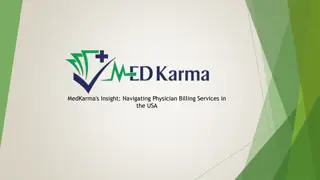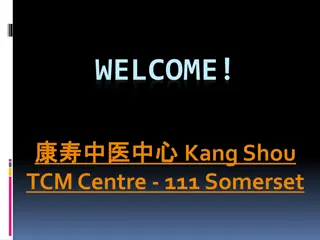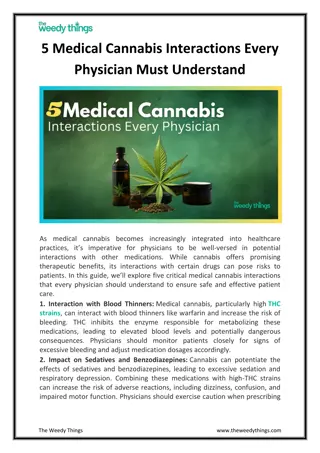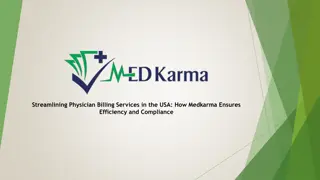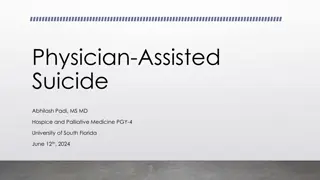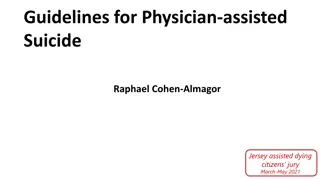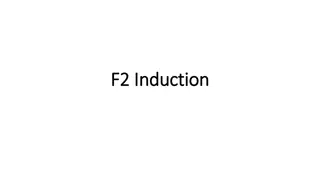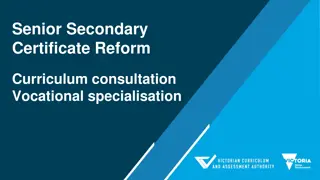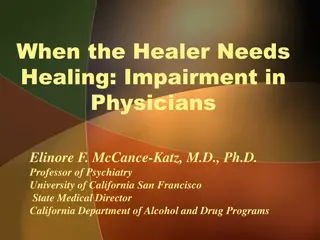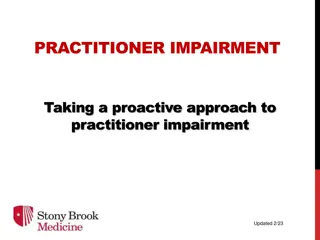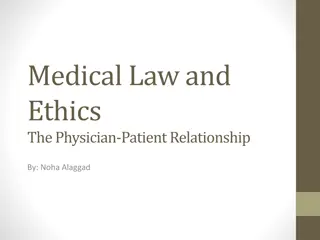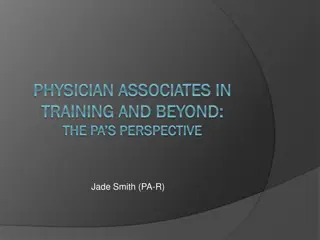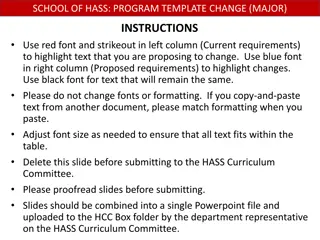Proposed Changes in Physician Training Curriculum by JRCPTB
Introduction of a new Internal Medicine stage 1 curriculum, driven by factors like GMC reviews, need for better patient care, and flexibility in training. The proposed model aims to enhance physician training pathways through stakeholder consultations and discussions with key entities, with a focus on delivering improved care in practice. Implementation includes phased rollout of new specialty curricula and introduction of enhanced Internal Medicine training stages.
Download Presentation

Please find below an Image/Link to download the presentation.
The content on the website is provided AS IS for your information and personal use only. It may not be sold, licensed, or shared on other websites without obtaining consent from the author. Download presentation by click this link. If you encounter any issues during the download, it is possible that the publisher has removed the file from their server.
E N D
Presentation Transcript
Joint Royal Colleges of Physicians Training Board (JRCPTB) New Internal Medicine stage 1 curriculum Peter Hammond Head of School of Medicine, HEE Yorkshire and the Humber
Overview Drivers for change New model for physician training Internal Medicine curriculum Implementation Next steps Further information
Drivers for change GMC review of curriculum standards and generic professional capabilities (GPCs) CMT and challenge of medical registrar role Burden of assessment and tick-box approach Flexibility review Shape of Training (SoT) review
Shape of Training Postgraduate medical training curricula must: Better support needs of patients and service Produce doctors who can participate in acute unselected take and provide continuity of care Better support delivery of care in the community Support a more flexible approach to training Describe how specialist/ sub-specialist components could be delivered as credentials
Proposed model for physician training Wide-ranging consultation with stakeholders Discussion with UK SoT Steering Group & GMC Proposed new training pathway with enhanced internal medicine (IM) training New IM stage 1 curriculum to replace CMT Phased implementation of new specialty curricula and IM stage 2
Overview New Internal Medicine stage 1 curriculum Approved by GMC Dec 2017 Proposed model for physician training Generic Professional Capabilities (GPCs) Capabilities in Practice (CiPs) Inclusion of other medical specialties in AUT Neurology / Palliative Med / GU Med Implementation Build new IM 1-3 year rotations
Group 2 specialties Small specialties which will not contribute to acute unselected take and will not dual train with Internal Medicine Will select at end of IM2 with full MRCP(UK) Trainees may wish to complete IM stage 1 to keep options open
Group 1 specialties (dual train with Internal Medicine) Group 2 specialties (single CCT) Acute Internal Medicine Allergy Cardiology Audio vestibular Medicine Clinical Pharmacology and Therapeutics Aviation and Space Medicine Endocrinology and Diabetes Mellitus Clinical Genetics Geriatric Medicine Clinical Neurophysiology Gastroenterology Dermatology ** Genitourinary medicine Haematology Infectious Diseases* Immunology Neurology Medical Ophthalmology Palliative Medicine Nuclear Medicine Renal Medicine Paediatric Cardiology Respiratory Medicine Pharmaceutical Medicine Rheumatology Rehabilitation Medicine Tropical Medicine* Sport and Exercise Medicine *Discussion ongoing re dual programmes with MM/MV **Detail of programme to be determined Medical Oncology not included - ongoing discussion with UKSTSG
New IM stage 1 curriculum 14 high level capabilities in practice (CiPs) mapped to GPCs Holistic assessment based on entrustment decisions Mandatory training components Meets GMC standards for curricula and assessment (approved 8 December 2017)
Generic CiPs 6 generic CiPs cover professional behaviours and skills that are required of all physicians Assessment of the generic CiPs will be underpinned by the GPC descriptors ES will assign global rating for generic CiPs using anchor statements (below, meeting or above expectations)
Generic CiPs 1. The ability to successfully function within NHS organisational and management systems Able to deal with ethical and legal issues related to clinical practice Communicates effectively and is able to share decision making, while maintaining appropriate situational awareness, professional behaviour and professional judgement Is focussed on patient safety and delivers effective quality improvement in patient care Carrying out research and managing data appropriately Acting as a clinical teacher and clinical supervisor 2. 3. 4. 5. 6.
IM clinical CiPs 8 clinical CiPs describe the tasks or activities essential to the practice of Internal Medicine Mapped to GPC domains and subsections ES makes a judgement on level of supervision required based on observation and feedback from range of assessors (MCR, MSF, SLEs etc)
Level descriptors Level 1: Entrusted to observe only no provision of clinical care Level 2: Entrusted to act with direct supervision Level 3: Entrusted to act with indirect supervision Level 4: Entrusted to act unsupervised
Clinical IM CiPs 1. 2. 3. Managing an acute medical take Managing an acute specialty related take Providing continuity of care to medical in-patients, including management of comorbidities and cognitive impairment Managing patients in an outpatient clinic, ambulatory or community setting, including management of long term conditions Managing medical problems in patients in other specialties and special cases Managing a multi-disciplinary team including effective discharge planning Delivering effective resuscitation and managing the acutely deteriorating patient Managing end of life and applying palliative care skills 4. 5. 6. 7. 8.
Group 1 specialties (dual train with Internal Medicine) Group 2 specialties (single CCT) Acute Internal Medicine Allergy Cardiology Audio vestibular Medicine Clinical Pharmacology and Therapeutics Aviation and Space Medicine Endocrinology and Diabetes Mellitus Clinical Genetics Geriatric Medicine Clinical Neurophysiology Gastroenterology Dermatology ** Genitourinary medicine Haematology Infectious Diseases* Immunology Neurology Medical Ophthalmology Palliative Medicine Nuclear Medicine Renal Medicine Paediatric Cardiology Respiratory Medicine Pharmaceutical Medicine Rheumatology Rehabilitation Medicine Tropical Medicine* Sport and Exercise Medicine *Discussion ongoing re dual programmes with MM/MV **Detail of programme to be determined Medical Oncology not included - ongoing discussion with UKSTSG
IM 1-3: From August 2019 Year One (IM1) - Trainees will have exposure to Acute Care (via Unselected Take) but with a concentration upon Continuing In-Patient Care with responsibilities in General Medical and Geriatric Medical wards. Trainees will enter IM1 having completed Foundation competencies Year Two (IM2) - Trainees will continue to have exposure to Acute Care (via Unselected Take) and critical care but the focus of the year will be Ambulatory Care and Medical Out-Patient management. Entry to IMT2 will be automatic following a successful ARCP at end of IM1 year. Trainees will be encouraged to complete MRCP by the end IM2 (although it will not be mandatory for progression to IM3 Year Three (IM3) -Trainees will have greater involvement in the Acute Unselected Take. They will be expected to lead the unselected take in the medical registrar role and provide support for IM1 & IM2 trainees as well as other staff involved in the take (eg Foundation trainees, GP trainees, ACCS trainees and others) Trainees will enter IM3 upon satisfactory completion of IM2 ARCP or via other routes
Acute take Trainees should be involved in the acute unselected medical take in each year of IM stage 1 (main focus in IM3) Should be actively involved in the care of at least 500 patients presenting with acute medical problems by the end of IM3
Critical care Trainees should have significant experience of critical care Flexibility in how this is delivered providing educational objectives are met Minimum 10 weeks over 3 years in no more than 2 blocks Ideally 3 month attachment to ICU in IM2 Possible 2 month attachment IM2 + 1 month IM3 Flexibility for IM1 attachment
Outpatients Trainees should be actively involved in minimum of 80 clinics Flexibility in how meet this target but focus on outpatients in IM2 Clinics may be in the parent specialty of attachment or other departmental clinics Curriculum provides definition of clinics and guidance on educational objectives
Simulation Training Simulation training throughout IM stage 1 Practical procedures Clinical scenario training Resuscitation training and management of the deteriorating patient
Group 2 Specialties Entry requirements will include successful completion of 2 years of Internal Medicine stage 1 and full MRCP(UK) diploma IM3 year will be highly focused on acute care and the transition to being a medical registrar running the unselected acute medical take; there is less requirement for this level of training for those trainees wishing to pursue a Group 2 specialty Trainees wishing to enter group 2 specialty will be treated equally whether completed 2 or 3 years of IM stage 1
Implementation Phase one 2018/2019 Training for supervisors and trainees JRCPTB will develop training materials and train a core faculty (heads of schools, CMT TPDs and college tutors). The core faculty will cascade training to clinical and educational supervisors and trainees No further CMT recruitment Commence recruitment into three- year IM programmes at IM1 Existing CT2 enter last year of CMT training Further intake of IM1 IM1 progress to IM2 2019/2020 First year of IM1 (replacing CT1) 2020/2021 First year of IM2 (replacing CT2) and further recruitment into IM1
Implementation Phase two 2021/2022 First year of IM3 First year of ST3 new curricula for group 2 specialties No further recruitment into ST3 in group 1 specialties - except for GUM, neurology and palliative medicine IM2 progress to IM3 or exit to enter group 2 specialties at ST3 Trainees exiting IM3 will competitively-enter ST4 specialty plus IM stage 2 2022/2023 First year of IM stage 2 training (IM4) First year of ST4 new curricula for group 1 specialties
Implementation Phase three 2023/2024 onwards Assimilation of old-style trainees into new curricula Full implementation of IM stage 1 and stage 2 Existing ST5-7 trainees to transition to new curricula as set out in the transition plan agreed with GMC
Implementation Plan New IM curriculum structure embedded 2025-26 2026-27 IM3 IM1 Transition Phase 1 2019-20 CT2 Transition Phase 2 2021-22 IM2 Transition Phase 3 2023-24 IM1 2018-19 CT1 2020-21 IM1 2022-23 IM3 2024-25 IM2 2027-28 IM2 GROUP ONE CT2 IM1 IM2 IM3 IM1 IM2 IM3 IM1 IM2 IM3 ST3 ST4 ST5 ST6 ST7 IM4 IM5 IM6 IM7 IM4 ST4 ST5 ST6 ST7 IM4 IM5 IM6 IM7 IM4 IM5 ST5 ST6 ST7 IM1 IM2 IM3 IM1 IM2 IM3 IM1 ST6 ST7 ST3 ST4 ST5 ST6 ST7 IM4 IM5 IM6 ST7 ST3 ST4 ST5 ST6 ST7 IM4 IM5 IM6 IM7 GROUP TWO ST3 ST4 ST5 ST6 ST3 ST4 ST5 ST6 ST3 ST4 ST4 ST5 ST6 ST3 ST4 ST5 ST6 ST3 ST4 ST5 ST5 ST6 ST3 ST4 ST5 ST6 ST3 ST4 ST5 ST6 ST6 ST3 ST4 ST5 ST6 ST3 ST4 ST5 ST6 ST3
Potential routes of entry to IM3: 1. Trainees who have previously completed CT2 Direct return to training at IM3 level, ideally within their original training Deanery < 3 years following satisfactory completion of Core Training 2. International Medical Graduates (IMGs) In possession of MRCP Medical Royal Colleges IMG sponsorship scheme / targeted MTI scheme 3. ACCS programmes JRCPTB to work with other ACCS specialties to determine the future ACCS programme and what additional training would need to be undertaken by those transferring from another specialty route 4. Possible transfer from other programmes Eg General Practice, Surgery, Psychiatry Further discussion needed
IM Stage 2 Trainees in all Group 1 specialties must dual- accredit in specialty plus IM Group 1 trainees can only demonstrate acquisition of GPCs with full IM training
Recruitment Points into Academic Training IMT1 IMT2 IMT3 IMT4 IM Stage 2 and specialty IM Stage 1 Foundation Consultant
Programme planning Regional implementation groups Review 2021 expected vacancies from exiting CCTs in group 1 specialties for IMY3 Review recruitment and fill-rates Identify any training anomalies and new opportunities Consider length of placements
Local work required CT / IM transition Identify ICU placements What constitutes Critical Care? Resp / Neuro / Transplant / mHDU Geriatric Medicine experience Review all current local CMT posts Identify any training anomalies / new opportunities Review recruitment / fill-rates 4 month vs 6 month rotations Seniority on acute take (IM3 leading AUT) Outpatient experience (80 over 3 yrs) Ambulatory care experience Simulation training experience / availability Other posts to possibly include in future training numbers Trust grade Clinical teaching fellows OOPR posts with ongoing medical input (eg research registrars) LAS posts Returning CT2s IMGs
Local work required Higher Medical Training Review 2021 expected vacancies from exiting CCTs in Group One specialties Balance of specialty vs acute training Especially for craft specialties Identify local problems Review all local HMT posts & programmes Identify training anomalies / opportunities Review recruitment / fill-rates 6 vs 12 month rotations Acute take through-out IM 4/5/6/7 Equivalent to 3 months per year Acute take in blocks through IM 4/5/6/7 3 months per year 6 months in Year 5/7 12 months in Year 6
Possible IM1 Year 4-6 month blocks Specialties Cardiology Diabetes & Endocrinology Gastroenterology Geriatric Medicine Renal Medicine Respiratory Medicine Rheumatology Infectious Diseases Components Essential Approx. 20 out patient clinics Based in ward AUT Simulation Clinical Skills teaching Attending H@N / Arrest Team
Possible IM2 4-6 month blocks Specialties Cardiology Diabetes & Endocrinology Gastroenterology Geriatrics Renal Medicine Respiratory Medicine Rheumatology Infectious Diseases Medical Oncology GU Medicine Neurology Requirements Approx. 40 out patient clinics Based in ward AUT Attending H@N / Arrest Team ICU/HDU >10 weeks Split across IM1/2/3 2 blocks max. Simulation Clinical Skills teaching
Possible pairings IM3 6 month blocks Specialties AIM (minimum 6 months) Cardiology Gastroenterology Renal Medicine Respiratory Requirements ICU/HDU >10 weeks Split across IM1/2/3 2 blocks max. Leading H@N team Leading Arrest Team Advanced Clinical Skills teaching Scenario based / SIM man Approx. 20 out patient clinics
IM 1-3 Examples of 4-monthly rotation Rotation IM1 IM1 IM1 IM2 IM2 IM2 IM3 IM3 1 Rheum Diabetes Geri Renal Gastro Resp Med AIM Cardio HDU/ICU 6 weeks HDU/ICU 4 weeks 2 Diabetes Geri Gastro Neuro ID Med Onco AIM Resp HDU/ICU 6 weeks HDU/ICU 4 weeks 3 Geri Neuro Resp Diabetes Rheum Renal Cardio AIM HDU 10 weeks 4 Cardio Geri Rheum GU Med ID Gastro AIM Resp Med HDU/ICU 6 weeks HDU/ICU 4 weeks
IM1-3 Examples of 6-monthly rotations Rotation IM1 IM1 IM2 IM2 IM3 IM3 1 Diabetes Geriatrics Resp Gastro Cardio AIM HDU/ICU 10 weeks 2 Geriatrics Gastro Rheum Neuro AIM Cardio HDU/ICU 6 weeks HDU/ICU 4 weeks 3 Rheum Geriatrics GU Med / ID Gastro AIM Resp HDU/ICU 6 weeks HDU/ICU 4 weeks
Training for supervisors and trainees Developing distance teaching toolkit JRCPTB will train a core faculty and provide a flexible teaching programme to deliver training locally Heads of schools will organise events to train local faculty College tutors to oversee training in LEPs
Immediate Regular implementation meetings timetabled Spread the word! Trust DME Directorate meetings Trainees Identifying IM3 posts CT3 posts LAS posts Vacant posts Start discussions Outpatient opportunities ICU / HDU blocks in IM1/2/3 Palliative Medicine experience
2018 Prepare for recruitment Broad descriptions of programmes No details on IM3 posts required Develop training for ES / CS / trainees Keep communicating!
2019 Training programme for supervisors and trainees rolled out to all LEPs Implementation Aug 2019
2020 2nd year of IM1 recruitment Review ARCP for likely early exiters Fine tune IM3 numbers
2021 Review IM2 ARCPs May-June No further ST3 recruitment in group 1 specialties 1st year of new IM3 programmes Final year of standard ST3 recruitment in GUM Palliative Med Neurology Recruitment to new curricula for Group 2 specialties
2022 Training for trainers and trainees for all specialties 1st year of new Group 1 curricula recruitment





